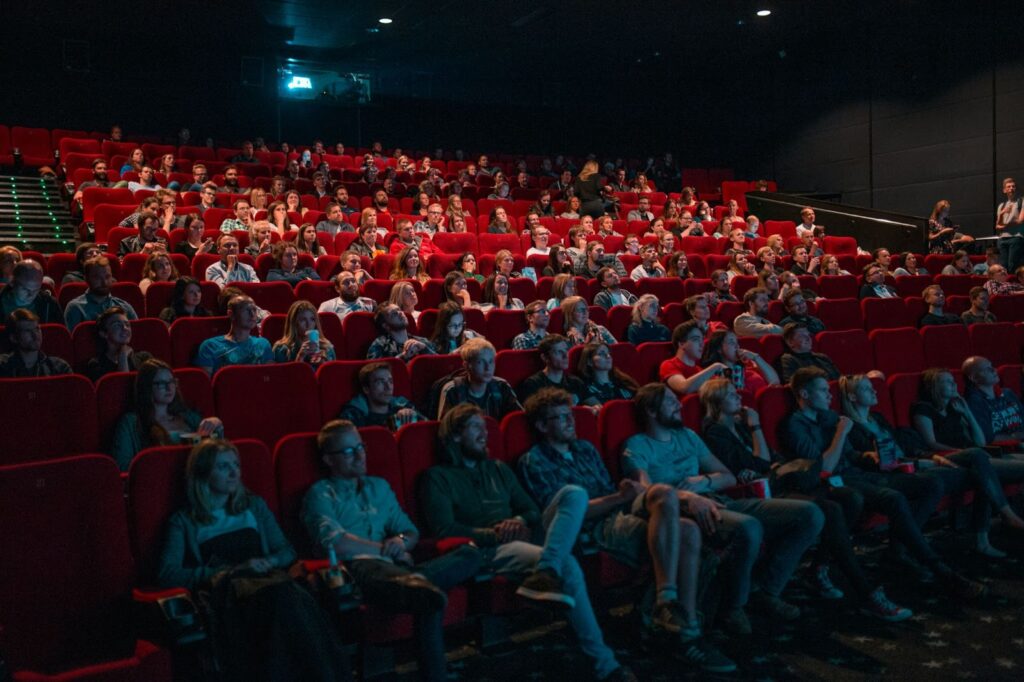
Lately, Hollywood has seen an increase in diversity on the silver screen, with more and more Black actors occupying starring roles in Hollywood. However, what is perceived as progress comes with significant challenges. The same actors starring in these blockbuster productions often find themselves sidelined in the narratives published by the media, face harsh backlash from fans and receive less support from the industry.
Cynthia Erivo, the Black actress cast as Elphaba in the upcoming live-action adaptation of “Wicked”—a role typically portrayed by white actresses—has openly expressed her frustration over the negative reactions from fans. Likewise, actress and singer Halle Bailey encountered harsh criticism and racist backlash when she was chosen to play Ariel in “The Little Mermaid” live-action adaptation. Despite the wave of negativity directed at her, fans showed admiration and enthusiasm for her white co-star, Jonah Hauer-King.
This issue extends beyond film, showing its relevance within the theatre world as well. Earlier this year, Francesca Amewudah-Rivers, who played Juliet in a modern adaptation of “Romeo and Juliet” on London’s West End theatre, faced death threats and backlash for stepping into the iconic role, highlighting the strange yet persistent discomfort audiences possess when they see Black talent dominate spaces deemed as “white.”
In this context, although Black actors are being cast more frequently in leading roles, can it be genuinely regarded as progress if studios and production companies persist in shirking their duty to support, defend and uplift these performers?
In the West End’s adaptation of “Romeo and Juliet,” Amewudah-Rivers was cast alongside Tom Holland in the star roles, but while Amewudah-Rivers was bombarded with scathing verbal abuse and racism, Holland was celebrated.
The same social media that praised Holland, erupted with acidic remarks about Amewudah-Rivers and her appearance. Some users hid behind the pretense of “wanting Shakespearean accuracy” to mask their blatant disrespect—even though the production was a modern reimagining, free from the constraints of history. Aside from this, some remarks were outright, unapologetically racist.
Social media sites like X became a playground for bitter criticism against Amewudah-Rivers. While users fawned over Holland and gushed over his girlfriend, actress Zendaya, attending his performances, Amewudah-Rivers was subjected to floods of disparaging comments.
One X user complained, “They’re blackwashing a white character. A character who is known for being beautiful. They can’t have gotten it more wrong.”
Others on Reddit cruelly targeted her appearance, with one user commenting “Not to be rude, but she looks way more masculine than Tom Holland.” And throughout the vitriol, her co-star Holland remained silent, never stepping up to defend her.
However, in an interview with Deadline, Rachel Zegler, a musical theatre star who played Juliet in a different Broadway adaptation of “Romeo and Juliet,” expressed her support for Amewudah-Rivers and condemned the West End’s lack of action.
“You need to protect people when you make a vow to cast them in something,” Zegler said. “You can’t act naive—you know how the public is going to react because they’ve been acting like this for years.”
Zegler’s words resonated with the truth for many in the entertainment industry. For too long, Black actors have been utilized by large companies as symbols or props, serving merely as conversational tools to express the diversity of perspectives currently at play.
Black talent often find themselves begging for support and protection, especially Black women. Following the whirlwind of hate Amewudah-Rivers received, more than 880 Black actors signed an open letter in response to the backlash, echoing Zegler’s sentiments.
They expressed that for far too long, “theatre companies, broadcasters, producers and streamers have failed to offer any help or support when their Black artists face racist or misogynistic abuse.” This ongoing neglect highlighted a troubling truth– while diversity in casting may be on the rise, genuine support for Black actors remains alarmingly absent.
This lack of support is further seen by the severe criticism Black actors face when they stand up for themselves. Erivo, starring alongside Ariana Grande in the upcoming live-action “Wicked,” took to Instagram to slam a fan-made poster that had been edited to mimic the original musical’s. In this altered poster, Erivo’s eyes are obscured, and both her and Grande’s faces become indistinguishable—quite the contrast to the official film poster, where Erivo described herself as looking “right down the barrel of the camera to you, the viewer.”
Erivo condemned the fan editor, expressing how demeaning such actions are, compounded by the inappropriate and racist comments she endures daily simply for doing her job as an actress. Beyond facing hate comments every day, these Black actors often find themselves unjustly blamed for critiques fans have about the film, usually having no direct connection. In Erivo’s case, she has faced relentless racist criticism as a Black woman playing Elphaba, despite Elphaba being displayed as a green character in the production.
Erivo’s response to the poster was met with furor, social media users mocked her, claiming she was over dramatic and misinterpreting the image. However, it’s crucial to understand Erivo’s perspective. Even if the fan did not intend to offend, Erivo has faced relentless vitriol and criticism for portraying Elphaba before the film has even been released. Seeing a poster where her face is erased, especially after being constantly told she does not belong in her role, can be a tipping point for any actor.
As the industry takes steps toward greater inclusivity, it’s vital to understand that diversity should not just be a box to check, it must extend beyond casting choices to include advocacy and protection for those artists who step into the spotlight. It stings to see white co-stars celebrated and uplifted while their Black counterparts endure relentless criticism and erasure. So if studios and production companies wish to champion progress, they must commit to amplifying Black voices, defending them against the harsh realities of racism, and providing a support system that allows them to thrive.
Copy edited by Camiryn Stepteau

